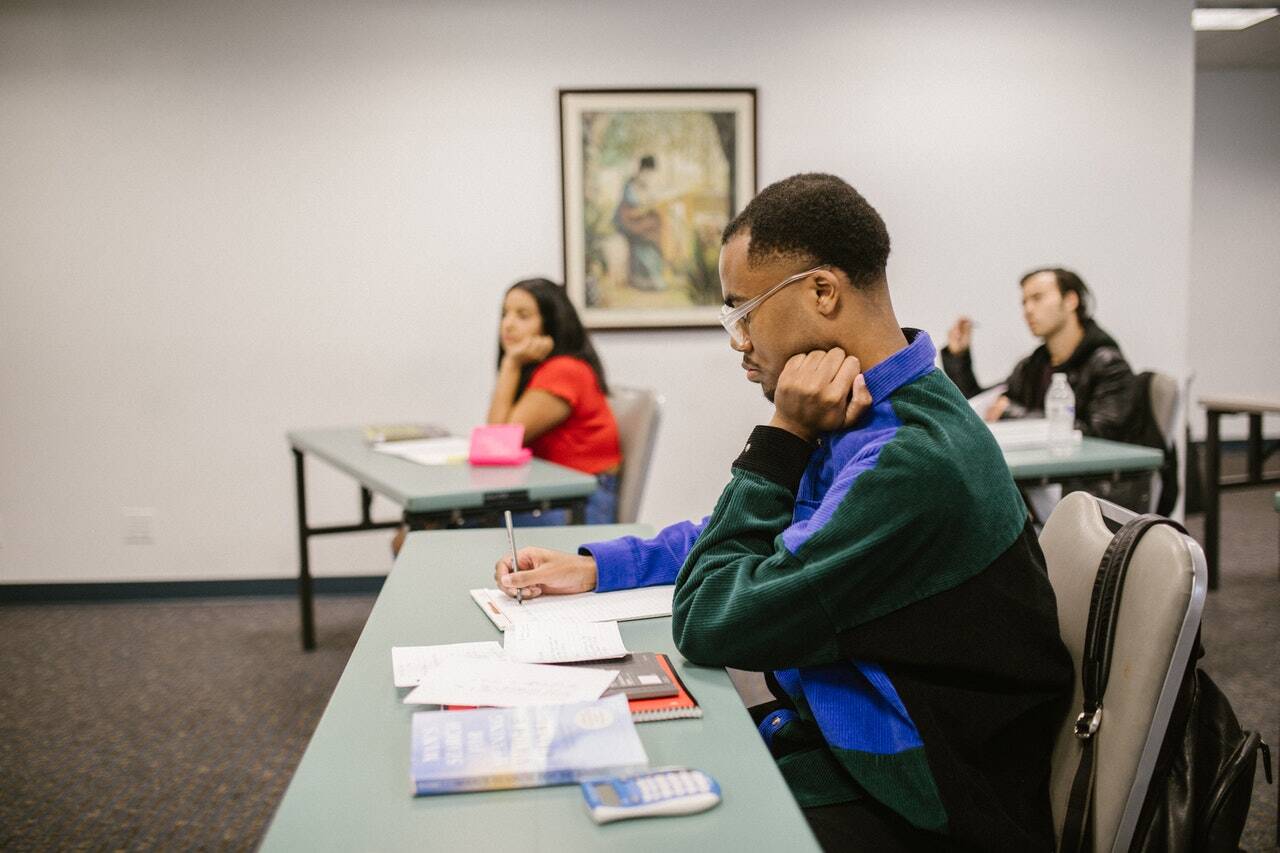Table of Contents
- Why D.C. Is the Perfect City for Student Networking
- Overcoming the Myths of Networking
- Practical Ways Students Can Network in D.C.
- Leveraging D.C.’s Unique Opportunities
- Career Connections
- Building Lasting Relationships, Not Just Contacts
- Common Mistakes to Avoid
- In-Demand Careers for Students in Washington, D.C.
- How BAU Programs Connect to D.C.’s Career Opportunities
- Your Gateway to Opportunity: Studying at BAU in the Heart of D.C.
- Conclusion
For students in Washington, D.C., the college experience extends far beyond classrooms and textbooks. The city itself is a living laboratory of politics, business, technology, and global affairs. More importantly, it offers unmatched opportunities to build career connections that can shape the future long before graduation. Starting early matters: relationships developed during college often lead to internships, mentorship, and the kinds of insights that transform academic knowledge into professional success.
Why D.C. Is the Perfect City for Student Networking
Unlike many other U.S. cities, Washington, D.C. is not dominated by one single industry. Instead, it is home to a diverse ecosystem of federal agencies, think tanks, nonprofits, international organizations, Fortune 500 companies, and startups. This unique environment creates an ideal setting for students to explore careers across multiple sectors.
D.C. also attracts global talent. On any given day, students might attend a lecture at a world-renowned think tank, join a panel discussion at an embassy, or meet professionals at a business innovation hub. Few cities provide such concentrated access to influential voices and organizations. For students who are serious about networking, D.C. is a place where opportunities are not hidden, they are happening every day, right outside the campus gates.
Overcoming the Myths of Networking
One reason students hesitate to network is because they misunderstand what it actually means. Networking is often pictured as a high-pressure event where extroverts thrive and everyone else feels awkward. In reality, it is about building authentic relationships based on curiosity, respect, and mutual benefit.
Common myths include:
-
“Networking is only for outgoing people.” In truth, listening, asking thoughtful questions, and showing genuine interest are far more effective than dominating conversations.
-
“Networking is transactional.” Students sometimes think they must ask for a job immediately, but strong networks are built on trust, not quick requests.
-
“I need a huge network to succeed.” Research shows that most opportunities come from “weak ties” which are casual connections that lead to unexpected openings.
By reframing networking as relationship-building, students can approach it with more confidence and less pressure.
Practical Ways Students Can Network in D.C.
D.C. offers countless ways for students to connect with professionals and peers. The key is to take advantage of both on-campus and off-campus opportunities.
-
Campus Resources. Career fairs, alumni panels, and faculty mentors are some of the most accessible ways to start building connections. Alumni in particular can be valuable guides since they understand the challenges of transitioning from college to career.
-
Professional Events. Conferences, policy forums, and industry workshops take place regularly in D.C. Attending even one or two each semester can lead to valuable introductions.
-
Student Organizations. Clubs focused on STEM, business, debate, or entrepreneurship not only provide leadership experience but also attract guest speakers from industry.
-
Internships and Volunteering. Many D.C.-based internships expose students to real-world challenges while expanding their professional networks. Volunteering at nonprofits or community events can create similar opportunities.
-
Online Platforms. LinkedIn is particularly powerful in D.C., where professional culture is strong. Students should keep profiles polished, connect with peers they meet at events, and join groups relevant to their field.
When combined, these approaches create a steady rhythm of engagement that helps students grow their networks organically.
Leveraging D.C.’s Unique Opportunities
What makes D.C. special is the breadth of its professional landscape. Students can align their networking with personal interests by exploring the following avenues:
-
Think Tanks and Research Institutes. These organizations frequently host free public lectures and discussions where students can interact with policy experts.
-
Embassies and Cultural Centers. International events provide exposure to global perspectives while offering a chance to meet diplomats and international professionals.
-
Professional Associations. Many national associations are headquartered in D.C., and student memberships often include discounted access to events and resources.
-
Government Programs. Internships with congressional offices, federal agencies, or nonprofit advocacy groups give students both experience and valuable introductions.
By tapping into these resources, students don’t just study in D.C.—they become active participants in the city’s professional life.
Career Connections
At the heart of networking is the ability to create and maintain career connections that last beyond a single meeting. Building relationships requires more than collecting business cards or LinkedIn contacts. It’s about nurturing a professional circle that grows with you over time.
To turn a meeting into a meaningful connection, students should:
-
Follow up thoughtfully. A short, personalized message after an event can turn a one-time interaction into an ongoing dialogue.
-
Offer value. Even as students, they can contribute fresh perspectives, share research, or volunteer on projects.
-
Stay consistent. Checking in occasionally, congratulating contacts on achievements, or sharing relevant articles keeps relationships warm without overwhelming them.
When approached this way, networking evolves into a long-term asset. These career connections often become mentors, collaborators, and advocates who open doors to opportunities that formal applications might never reach.
Building Lasting Relationships, Not Just Contacts
The difference between networking and relationship-building lies in intent. Collecting as many names as possible may create the illusion of a large network, but it rarely leads to meaningful results. Students should aim to develop deeper connections with fewer people, focusing on quality over quantity.
Strong professional relationships are grounded in respect, trust, and authenticity. This means taking time to learn about others’ goals, sharing updates about one’s own journey, and being genuine in all interactions. Over time, this creates a professional reputation that speaks louder than any résumé.
Common Mistakes to Avoid
While networking is powerful, it can also be undermined by common mistakes. Students should avoid:
-
Over-networking without focus. Attending too many events without clarity can lead to shallow interactions.
-
Being overly transactional. Asking for jobs or favors immediately can turn professionals away.
-
Neglecting professionalism. Whether online or in person, students should maintain a respectful tone and present themselves as reliable and engaged.
By steering clear of these pitfalls, students can build networks that support their growth rather than hinder it.
In-Demand Careers for Students in Washington, D.C.
Beyond its reputation as a political hub, Washington, D.C. is also a thriving center for technology, business, and global problem-solving. Students in the city have direct access to industries where professional opportunities are growing rapidly. Some of the most sought-after career paths include:
✅ Request information on BAU's programs TODAY!
-
DevOps Engineer. With countless federal agencies, and private firms relying on secure and efficient systems, D.C. has a rising demand for DevOps professionals who can streamline operations and support large-scale projects.
-
Data Analyst. Organizations across government, nonprofits, and international institutions rely on data to shape policies and strategies. Data analysts are in high demand to interpret complex information and guide evidence-based decision-making.
-
Cyber Security Specialist. D.C. is one of the country’s leading cybersecurity hubs, where protecting digital infrastructure for both government and private organizations is critical. This creates abundant opportunities for careers in information security.
-
Policy Analyst. With think tanks, NGOs, and global institutions headquartered in D.C., policy analysts play a crucial role in shaping national and international initiatives.
-
Financial Analyst. The city’s financial institutions, consulting firms, and multinational organizations provide strong demand for analysts who can evaluate investments, budgets, and economic strategies.
-
Marketing Specialist. From tech startups to global nonprofits, organizations in D.C. rely on marketing professionals to reach audiences and promote their missions on both local and international scales.
These roles reflect D.C.’s diverse economy and highlight how students can align their academic studies with industries that are actively hiring in the nation’s capital.
How BAU Programs Connect to D.C.’s Career Opportunities
At Bay Atlantic University (BAU), programs are designed to align with Washington, D.C.’s most in-demand industries and career paths:
-
-
MS in Cyber Security → prepares students for advanced roles like Cyber Security Specialist or DevOps Engineer.
-
MS in Big Data Analytics or MS in Data Science and Public Policy → equip students with the analytical and strategic skills needed to become Data Analysts, Policy Data Specialists, or Financial Analysts.
-
BA in Political Science and International Relations → connects students with opportunities to work as Policy Analysts, Foreign Service Officers, or NGO Managers.
-
BA in Business Administration and Management or Master of Business Administration (MBA) → provide the foundation for careers such as Marketing Specialist, Management Consultant, or Business Strategist.
-
BS or MS in Software Engineering → prepare graduates for technical roles across industries, from Software Developer to Systems Architect.
-
MS in Artificial Intelligence or MS in Cloud Computing Engineering → support emerging fields with roles such as AI Engineer, Cloud Solutions Architect, or Machine Learning Specialist.
-
By aligning academic learning with Washington, D.C.’s most dynamic industries, BAU ensures students are ready to thrive in fields where demand is growing both locally and globally.
Your Gateway to Opportunity: Studying at BAU in the Heart of D.C.
Bay Atlantic University (BAU) offers students a unique advantage: direct access to the professional, cultural, and political hub of Washington, D.C. Studying in the nation’s capital means that learning extends far beyond the classroom.
At BAU, students benefit from:
-
Proximity to Opportunity. The university’s central location places students near embassies, global organizations, tech companies, and government institutions, all within reach for internships, part-time roles, and networking events.
-
Industry-Connected Faculty. Many professors bring real-world experience from careers in business, policy, and technology, connecting academic theory to current industry practices.
-
A Global Student Community. With peers from more than 50 countries, students develop cross-cultural communication skills that are highly valued in today’s workforce.
-
Career Development Support. BAU provides workshops, mentorship programs, and internship guidance designed to help students make meaningful career connections while they study.
-
Experiential Learning. Beyond lectures and textbooks, students engage in projects, competitions, and collaborations that mirror real-world challenges.
By combining academic excellence with direct exposure to one of the world’s most dynamic cities, BAU ensures that its students are not only prepared for graduation but positioned to thrive in their careers.
Conclusion
Networking in Washington, D.C. is not just an extracurricular activity but a career accelerator. The city’s unique mix of industries and global influence provides an environment where students can build meaningful career connections early, shaping their professional paths before graduation.
The key is to start small, approach networking with authenticity, and treat every interaction as the beginning of a relationship rather than a transaction. With consistent effort, the connections students make in D.C. today can open doors to internships, jobs, and collaborations that shape their careers for years to come.














